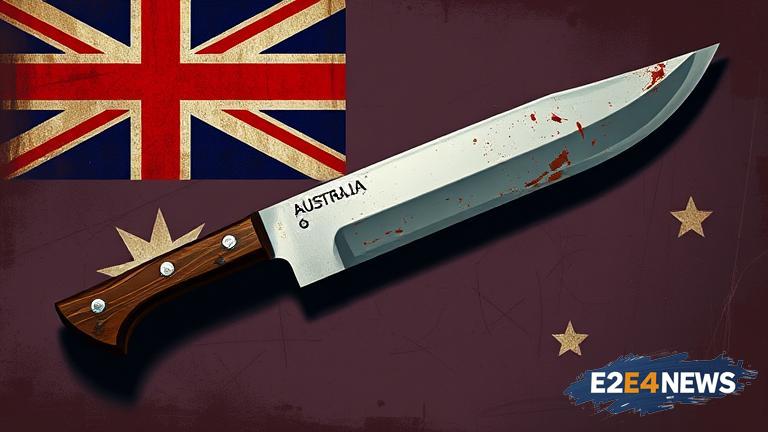In a bid to curb the increasing number of blade-related crimes, the Western Australian government has launched a three-month machete amnesty. The campaign, which commenced recently, aims to encourage individuals to surrender their machetes and other bladed instruments without fear of prosecution. This initiative is part of a broader effort to address the rising crime rates in the region, particularly those involving violent attacks with blades. According to reports, the number of machete-related incidents has been on the rise, prompting concerns among law enforcement agencies and the general public. The amnesty period provides an opportunity for individuals to dispose of their bladed instruments safely and responsibly. The campaign is being led by the Western Australian Police Force, in collaboration with local community groups and organizations. During the amnesty period, designated drop-off points will be set up across the region, where individuals can surrender their machetes and other bladed instruments. The police have assured that no questions will be asked, and no charges will be laid against those who surrender their blades during this period. The goal of the campaign is to reduce the number of bladed instruments in circulation, thereby minimizing the risk of violent attacks. The police have also emphasized that the amnesty is not a sign of weakness, but rather a proactive approach to addressing the root causes of blade-related crimes. The campaign has received widespread support from local communities, with many residents welcoming the initiative as a step in the right direction. However, some have raised concerns that the amnesty may not be enough to address the underlying issues driving blade-related crimes. Despite these concerns, the police remain committed to the campaign, citing the success of similar initiatives in other regions. The Western Australian government has also announced plans to increase funding for community programs aimed at reducing crime rates and promoting social cohesion. The machete amnesty is seen as a key component of this broader strategy, which aims to tackle the root causes of crime and promote a safer, more harmonious community. As the campaign gains momentum, residents are being encouraged to take an active role in promoting the initiative and encouraging others to surrender their bladed instruments. The police have also launched a social media campaign, using the hashtag #BinTheBlade, to raise awareness about the amnesty and promote community engagement. With the three-month amnesty period now underway, residents are being urged to take advantage of the opportunity to surrender their machetes and other bladed instruments. The success of the campaign will be closely monitored, with the police and government agencies working together to evaluate its effectiveness and identify areas for improvement. In the meantime, residents are being encouraged to remain vigilant and report any suspicious activity to the authorities. The introduction of the machete amnesty has sparked a wider debate about the need for stricter laws and regulations governing the possession and use of bladed instruments. While some argue that the amnesty is a necessary step, others believe that more needs to be done to address the underlying causes of blade-related crimes. As the campaign continues to unfold, it remains to be seen whether the machete amnesty will have a lasting impact on reducing crime rates in Western Australia. Nevertheless, the initiative has been widely welcomed as a positive step towards creating a safer, more harmonious community.
